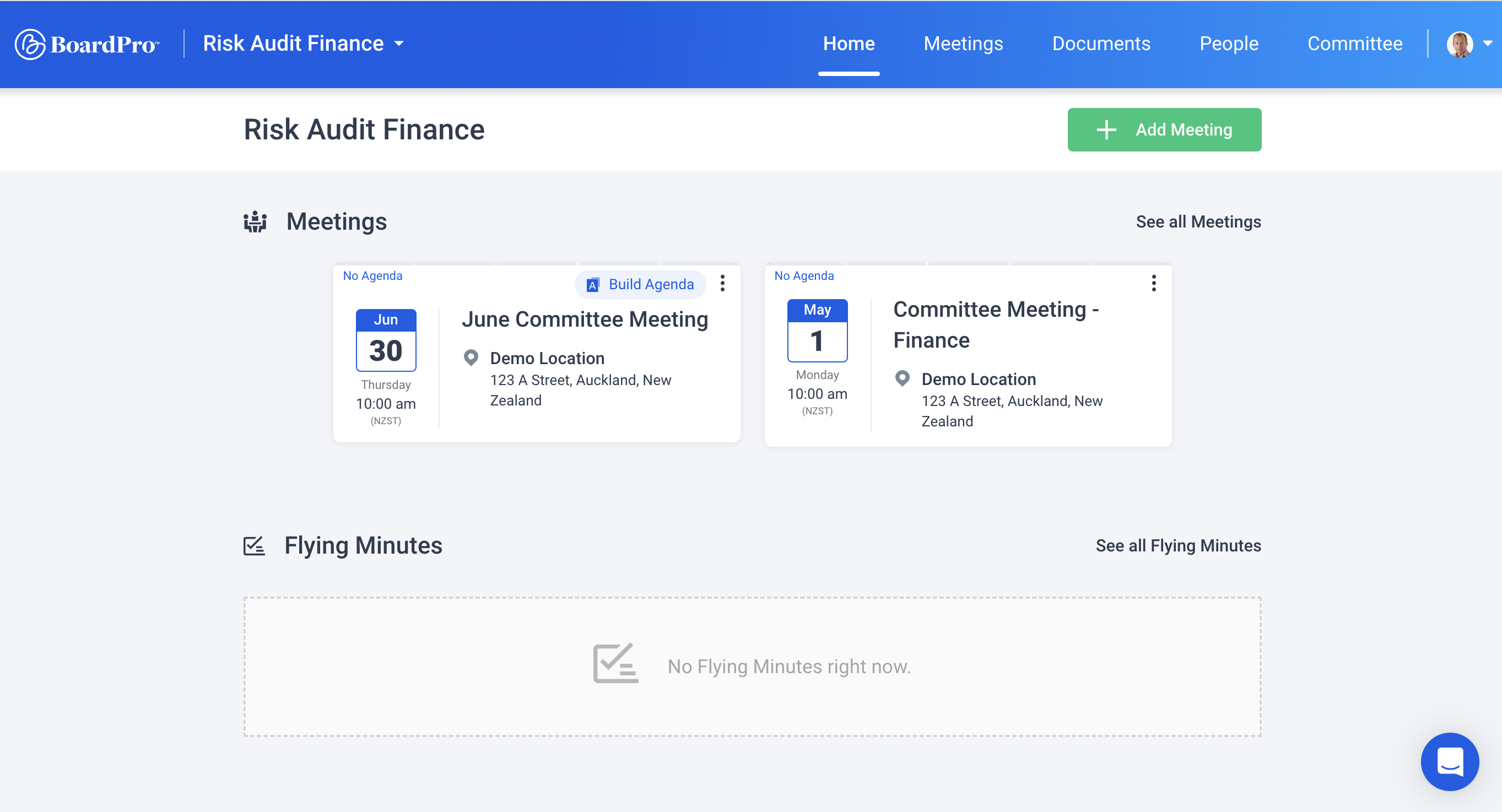Getting started with your board committee
Committees play an important role in supporting the board. Made up of members with specific expertise, they help tackle specific areas of concern for their company, providing guidance on company strategy, finance and security, to name a few. Board committees are structured to suit their organisation’s needs, so their style varies. But ultimately, they all share common goals when it comes to supporting their company.
The thing is, though, many companies find it challenging to take full advantage of the unique benefits their committees offer. There may be a sense of division between the board and committee members or a general lack of organisation in the workplace that fosters circular discussions and undermines decision-making.
Understanding the vital role that committees play can help mitigate these common problems. By implementing best practices on both the structural and operational levels, you will set your committees up for success across the board.
What board committees look like
Small committees have the expertise to focus on key company issues such as governance and finances or certain projects. Both standing and temporary (ad hoc) committees can help companies tackle many tasks at once by allowing the board to delegate.
Standing committees are subject to their board’s constitution and work long-term. Ad hoc committees are established for a set time to focus on a specific task. This could be anything from rewriting the board’s constitution to recruitment or the launch of a new product or service.
Boards generally rely more on standing committees than ad hoc committees, as the ongoing demands of running a business make up the majority of board-related tasks. Ad hoc committees – alongside task forces and advisory councils – offer an efficient alternative when there is a particular project a board is looking to get done and out of the way. Both committee styles let members contribute to company goals in a meaningful way by drawing on their professional backgrounds and expertise.
How to organise board committees
The structure is important when it comes to forming an effective board committee. In general, committees should:
- Be lead a chair and vice-chair who are responsible for leading the committee towards its assigned goals
- Report its progress to the board in a timely and accurate manner
- Schedule meetings, prepare agendas and keep accurate minutes for company records
- Fulfil its quorum
- Represent a wealth of varied, expert knowledge on the committee topic
Board members may serve on multiple committees as long as they are not stretched too thin by existing commitments. Some companies rotate committee members to ensure that ideas stay fresh and varied, while others limit employees to serving on one committee at a time to prevent burnout and encourage specialisation.
How to optimise them
Balanced committees equal a balanced board. You should tailor the size and style of your board to suit your organisational needs.

In general, large boards struggle with engagement and having too many cooks in the kitchen when it comes time to make important decisions, whereas small boards risk becoming echo chambers and stagnating under a lack of diversity. Knowing when to create a committee is crucial to creating an effective force that makes strong decisions, furthers company goals and furnishes the board with expert advice.
In general, it is recommended that committees include the following:
- An executive committee: Tasked with making crucial decisions and facilitating communication between the board and executive leadership
- An audit committee: Collaborates with auditors to review the audit report and management letter during the fiscal year, as well as managing expenses for the board and CEO
- A governance committee: Focuses on tasks relating to the board
- A finance committee: Prepares the annual budget and monitors performance as well as expenses
The role of board software
More often than not, boards and committees struggle with organisation and the demands of administrative tasks on their time. Many directors wish to focus more on company goals, and long-term strategy yet are mired in paperwork and chaotic email. board management software can help erase the clutter so that members can get back to focusing on what really matters.
Board software such as BoardPro makes committee work more manageable. boardPro is a user-friendly platform that provides centralised, secure storage for all committee documents.

It helps members collaborate in real-time from anywhere in the world, letting them access information and make edits at their convenience. Members can schedule meetings, take notes, read up on important details and approve decisions with the touch of a finger.
Creating committees allows boards to delegate important projects so that they can focus on the overarching goals of the company. By supporting experts through collaborative tasks, committees promote team spirit and prioritise efficiency in the workplace. boards who know that they can rely on the advice of their committees are better suited to make long-term strategic decisions that further their company’s vision.
By making a few simple changes to the structure of your committees, you can support your board in its goals. Take a look at the committees currently in existence within your board and ask yourself if they are all relevant to the company vision. Are they furthering organisational values? If not, try restructuring to best suit company needs.
When you're ready here's how BoardPro can help
Start a Free Trial — run a whole board meeting cycle for free, no credit card needed. You’ll be able to create board packs in a click, and have all minutes, decisions, actions and interests in one place. Be more effective, save time, and have everyone on the same page! Book a Demo — see BoardPro in action in this 30-minute demo, and have all your questions answered by a BoardPro specialist. You’ll get an introduction to all of BoardPro’s features — see how to set an agenda, create board packs, and take minutes. Attend a Free Governance Webinar — learn from our community of governance experts on subjects such as strategy, understanding board dynamics, reporting, and running effective meetings. You’ll join hundreds of others in these engaging events covering the latest governance topics. Find a Governance Template — practical documents to make governance easy! Templates cover strategic planning, board evaluation, risk assessment, SWOT analysis, and many other essential governance and business topics to grow your organisation and adopt good governance practices. |
Share this
You May Also Like
These Related Stories

How to effectively structure your committee

The debate over executive committees


